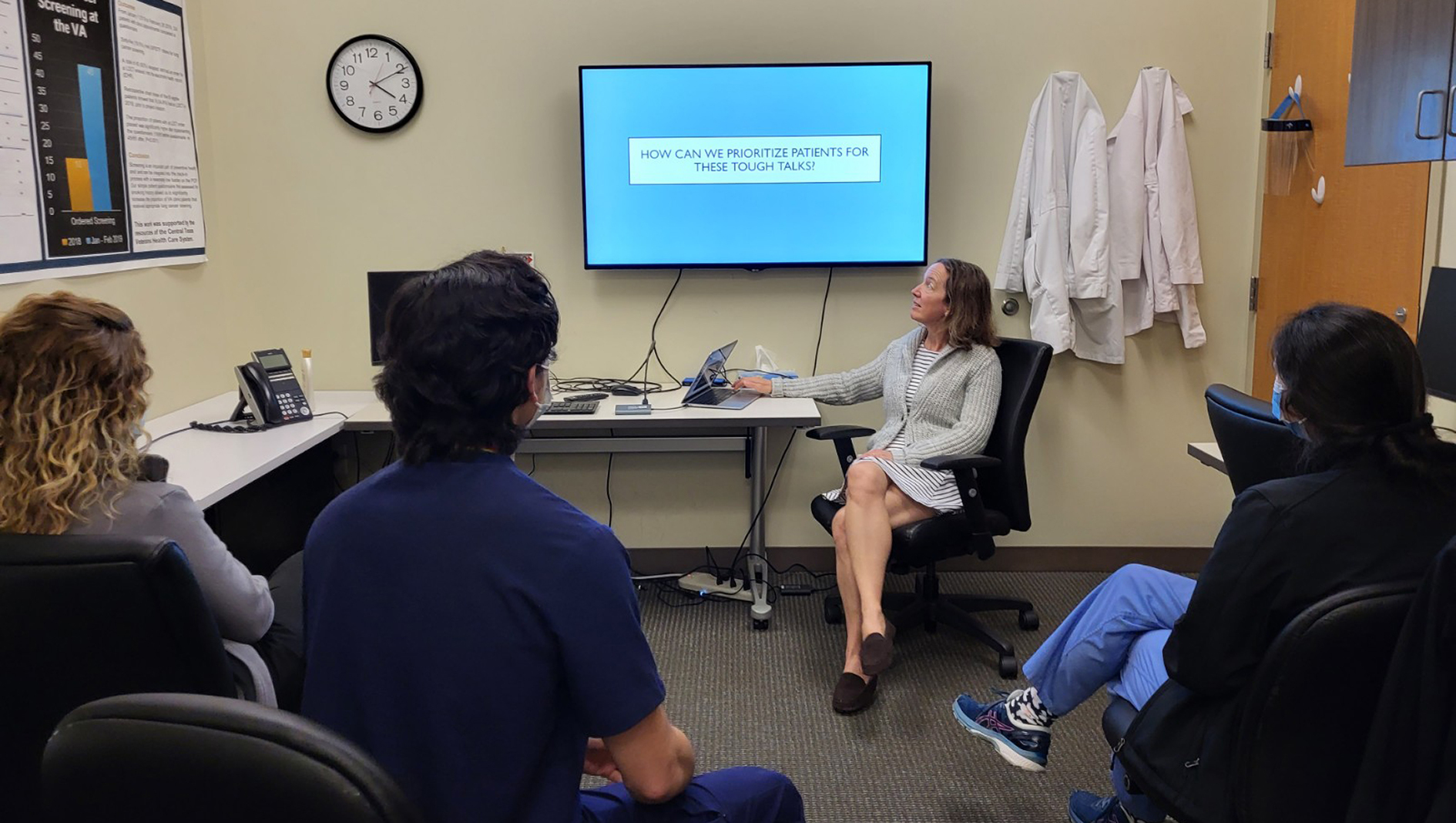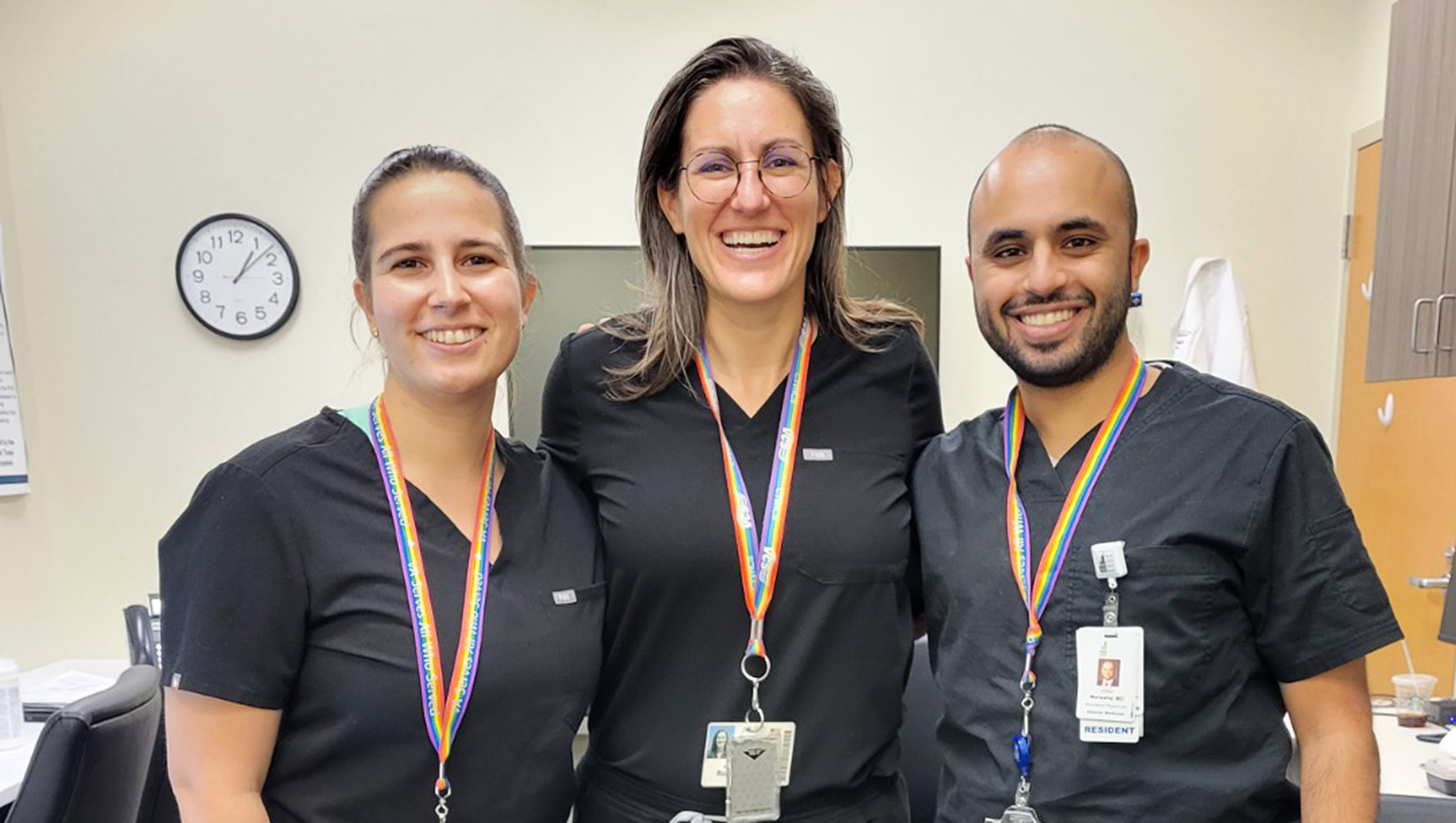The Internal Medicine Residency’s Primary Care Track provides an education focused in outpatient care while taking care of the nation’s veterans and other complex populations. The mission of the track is to train excellent primary care general internists to be leaders and innovators who provide evidenced-based, socially responsible care.
The program provides diverse outpatient clinical training, individualized mentoring, hands-on experience in quality improvement and comprehensive didactics in ambulatory clinical topics, evidence-based medicine and social determinants of health.
If you are interested in learning more about the Primary Care Track, please contact the track’s program director.
Program Director: Robin Reister, M.D.
Rotations
Compared with their categorical counterparts, the Primary Care Track residents’ training schedule includes added outpatient rotations and experiences. Primary care months allow each resident to rotate through different fields of internal medicine to experience care in additional settings while maintaining their regular continuity clinics.
Care settings include:
- Veterans Affairs Austin outpatient clinic: primary continuity clinic, medicine subspecialties and elective opportunities.
- Community clinic: continuity clinic experience at CommUnityCare’s Southeast Health and Wellness Center, one clinic in a network of Federally Qualified Health Centers.
- Out-of-the-clinic care: home-based primary care and outreach for people experiencing homelessness.
- High-yield clinic: dermatology, musculoskeletal medicine and neurology.
- Walk-in/inter-visit: walk-ins, acute care and inbox management.
- Women’s health: treating issues including contraception, menopause and incontinence in an OB-GYN clinic at CommUnityCare’s East Austin location.
During the clinic week, primary care residents join their categorical resident cohorts for all didactics and rotations.
Block Schedule
- ICU/CICU: 6 weeks
- Wards: 16 weeks
- Night float: 4 weeks
- Emergency medicine: 2 weeks
- Palliative care: 2 weeks
- Primary care: 6 weeks
- +2 clinic week: 12-14 weeks
- Total ambulatory: ~20 weeks
- ICU/CICU: 4 weeks
- Wards: 8 weeks
- Night float: PRN
- Neurology: 2 weeks
- Elective: 8 weeks
- Subspecialty selective: 2 weeks
- Distinctions: 2 weeks
- Primary care: 10 weeks
- +2 clinic week: 12-14 weeks
- Total ambulatory: ~24 weeks
- ICU/CICU: 4 weeks
- Wards: 8 weeks
- Night float: PRN
- Psychiatry: 2 weeks
- Elective: 8 weeks
- Subspecialty selective: 2 weeks
- Primary care: 12 weeks
- +2 clinic week: 12-14 weeks
- Total ambulatory: ~26 weeks
Curriculum
Advancing Care Transformation
Primary Care Track residents participate in Dell Medical School’s common curriculum, Advancing Care Transformation, which includes design thinking, quality improvement, leadership, health equity, academic scholarship and care transformation. The curriculum also includes dedicated mentorship for projects in quality improvement, health care value and/or population health.
Primary Care Clinical Topics
Primary care faculty and subspecialists discuss comprehensive clinical topics during morning and noon conferences as well as during the academic half-day curriculum.
Quality Improvement
Quality improvement is a strong part of the curriculum, allowing residents to have hands-on experience evaluating current processes and brainstorming opportunities for change. The schedule includes a protected half-day every clinic week to work on quality improvement projects and teaching.
Evidence-Based Medicine
The program provides a longitudinal curriculum in evidence-based medicine including an epidemiology didactics, outpatient journal club and ambulatory medical education elective.
Social Determinants of Health
Residents address social determinants of health through curriculum components regarding people who are LGBTQIA+, people experiencing homelessness, asylum seekers, behavioral health and military veterans’ health. Primary care residents participate in a health policy month, where they learn about health systems and advocacy.





